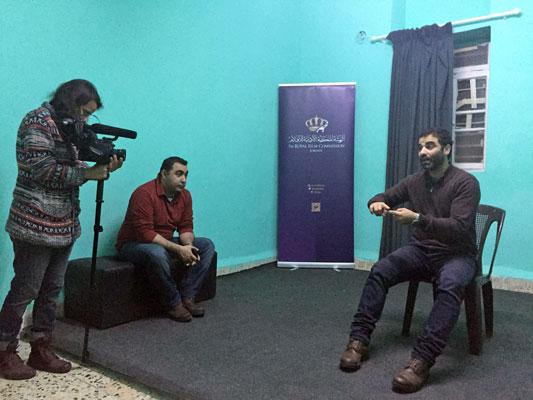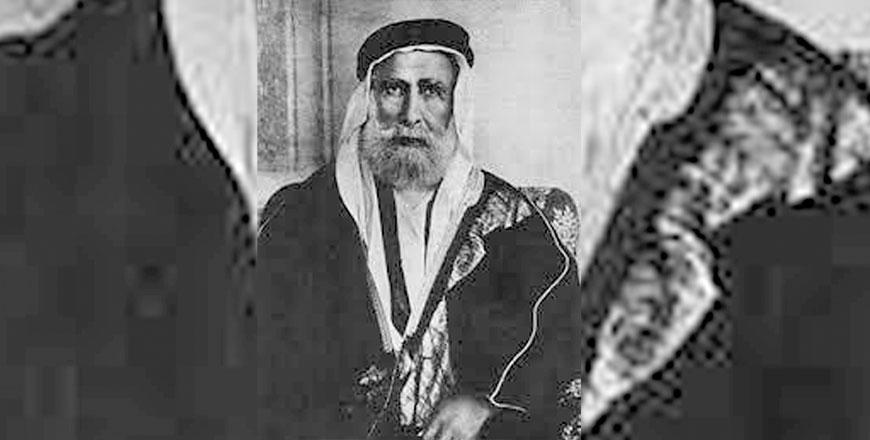You are here
Jordan Television to broadcast documentary on Great Arab Revolt
By JT - Sep 08,2016 - Last updated at Sep 08,2016

The firing of the first bullet of the 1916 Great Arab Revolt as dramatised in a documentary to be aired by Jordan TV this month (Photo courtesy of Sanabel production company)
AMMAN — Jordan Television is broadcasting a three-part documentary on the Great Arab Revolt on September 16th, 17th and 18th.
The documentary covers major historical milestones in the Arab world in the period between 1908 and 1921.
The trilogy, co-written and co-directed by Aseel Mansour and Roland May, is a docudrama combining re-enactments and archive footage.
Jordanian filmmaker Mansour said the film is a major project in the local cinema industry and the first of its kind, noting that it employs drama to tell the story of major historical figures, most importantly Sharif Hussein Bin Ali and his sons, King Abdullah I and King Faisal I.
Work on research, pre-production, shooting and production for the film took more than two years.
The documentary is produced by Al Sunbula Production (Spica Media), which produces historical dramas addressing key phases of Jordanian and Arab history to enrich public knowledge.
Shot mostly in Jordan, the trilogy features Jordanian, Turkish and British actors.
Jordanian actor Habis Hussein stars as Sharif Hussein Bin Ali, while Rashid Malhas plays the role of Prince Abdullah I and Khaled Ghweiri is featured as Prince Faisal I.
The documentary is includes several interviews with experts and historians who provided commentary on key historical events connected with the Arab Renaissance and explained its context.
It features interviews with historians Ali Mahaftha and Muhannad Mubaidin, Eugene Rogan, director ofthe Middle East Centre at St Antony's College at Oxford University and James Barr, an expert on Middle East history at the same university.
The film highlights the repercussions of rapid changes in the last years of the Ottoman Empire, namely the rise of Turkish ultra-nationalist movements and the Committee of Union and Progress' monopoly of government, arriving at the launch of the Great Arab Revolt, which constituted a military and intellectual revolution that took place mainly in Hijaz and Greater Syria to demand independence and freedom for Arabs and protect their identity.
The documentary also covers Sharif Hussein Bin Ali's relations with international powers, especially Britain, and the political and military complications that dominated the Arab region after World War I.
Related Articles
AMMAN — A website on the Great Arab Revolt’s centennial was launched on Monday by the executive committee for the Revolt’s anniversary celeb
AMMAN — The recent period has witnessed the production of many local films and series in the Kingdom, the Royal Film Commission (RFC) said S
The Kingdom on Wednesday marks the 89th death anniversary of Sharif Hussein Bin Ali (1852-1931). Sharif Hussein, who was the emir of Mecca and the king of Hijaz, launched the Great Arab Revolt in June 1916 with the objective of establishing an independent and unified Arab state.




















